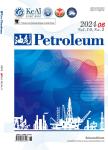Machine learning for recovery factor estimation of an oil reservoir:A tool for derisking at a hydrocarbon asset evaluation
作者机构:Skolkovo Institute of Science and TechnologyMoscowRussia JSC ZarubezhneftMoscowRussia
出 版 物:《Petroleum》 (油气(英文))
年 卷 期:2022年第8卷第2期
页 面:278-290页
核心收录:
学科分类:0820[工学-石油与天然气工程] 08[工学] 082002[工学-油气田开发工程]
主 题:Oil recovery factor Machine learning Regression Uncertainty estimation Conformal predictors Clustering Oilfield Oil reservoir
摘 要:Well-known oil recovery factor estimation techniques such as analogy,volumetric calculations,material balance,decline curve analysis,hydrodynamic simulations have certain *** techniques are time-consuming,and require specific data and expert ***,though uncertainty estimation is highly desirable for this problem,the methods above do not include this by *** this work,we present a data-driven technique for oil recovery factor(limited to water flooding)estimation using reservoir parameters and representative *** apply advanced machine learning methods to historical worldwide oilfields datasets(more than 2000 oil reservoirs).The data-driven model might be used as a general tool for rapid and completely objective estimation of the oil recovery *** addition,it includes the ability to work with partial input data and to estimate the prediction interval of the oil recovery *** perform the evaluation in terms of accuracy and prediction intervals coverage for several tree-based machine learning techniques in application to the following two cases:(1)using parameters only related to geometry,geology,transport,storage and fluid properties,(2)using an extended set of parameters including development and production *** both cases,the model proved itself to be robust and *** conclude that the proposed data-driven approach overcomes several limitations of the traditional methods and is suitable for rapid,reliable and objective estimation of oil recovery factor for hydrocarbon reservoir.



